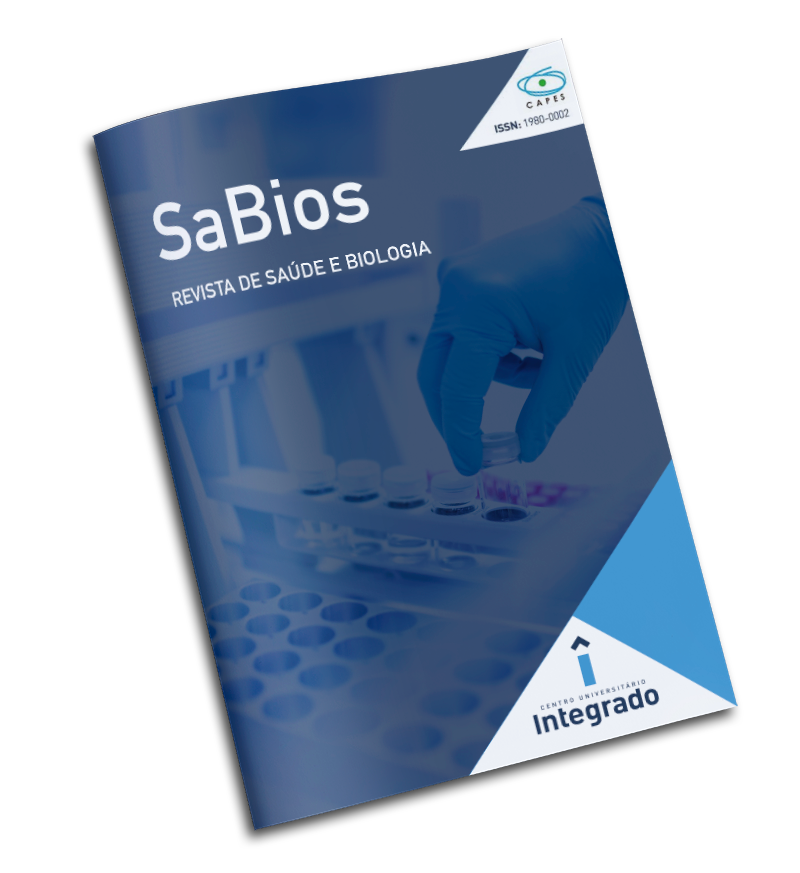Perfil epidemiológico de sífilis em um município do sudoeste do Paraná
DOI:
https://doi.org/10.54372/sb.2021.v16.3116Palavras-chave:
Sífilis, Sífilis adquirida, Sífilis congênitaResumo
A sífilis é uma Infecção Sexualmente Transmissível (IST) amplamente conhecida no Brasil e de fácil tratamento, porém com pouco controle nos últimos anos, sendo ainda um importante problema de saúde pública. O objetivo deste estudo foi avaliar as características epidemiológicas e fatores condicionantes de casos notificados de Sífilis adquirida e congênita no município de Palmas – PR. A metodologia baseia-se em estudo epidemiológico, descritivo, do tipo levantamento retrospectivo exploratório de caráter transversal e qualitativo, por meio de base de dados obtidos pela Vigilância de Epidemiologia de Notificações SINAN-NET, referentes aos casos notificados de sífilis congênita e de sífilis adquirida em residentes no município de Palmas – Paraná no período de janeiro de 2015 a dezembro de 2017. Os resultados da pesquisa apresentaram um total de 159 casos de sífilis adquirida registrados entre os anos de 2015 a 2017 no município de Palmas/PR, destacando-se o aumento considerável de 36% dos casos notificados no ano de 2017. O número de casos notificados de sífilis adquirida foi maior para o sexo feminino, havendo uma diferença de oito por cento (8%) entre os gêneros para os três anos. O índice maior de casos notificados de sífilis em gestantes foi de 60% para a faixa etária entre 20 a 29 anos e 35,4% para aquelas com ensino fundamental incompleto. O não tratamento dos parceiros se dá pela falta de comparecimento a unidade de saúde e a falta de pós contato com a gestante. A sífilis congênita apresentou aumento significativo no ano de 2017 (51%) com concentração maior no bairro Lagoão. Os registros de tratamento para todos os anos se apresentaram de forma inadequada pelos pacientes, demonstrando uma carência na sua efetivação, e ainda se apresentando como problema grave de saúde pública. Para pesquisas futuras sugere-se campanhas disseminadas em cada bairro, com maior frequência e atenção redobrada nos bairros que apresentam maiores índices.
Downloads
Publicado
Como Citar
Edição
Seção
Licença
Copyright (c) 2021 SaBios-Revista de Saúde e Biologia

Este trabalho está licenciado sob uma licença Creative Commons Attribution-NonCommercial 4.0 International License.
Direitos Autorais para artigos publicados nesta revista são cedidos pelo autor à SaBios-Revista de Saúde e Biologia, que está autorizada a publicá-lo em meio impresso, digital, ou outro existente, sem retribuição financeira para os autores. Em virtude da aparecerem nesta revista de acesso público, os artigos são de uso gratuito, com atribuições próprias, em aplicações educacionais e não-comerciais.
Copyright of articles published in this journal are transferred by the author to SaBios-Journal of Health and Biology, which is authorized to publish them in printed, digital or other existing way, without financial reward for authors. Considering that articles appear in this public accessed journal, they are free to be used in educational and non-commercial applications.





















